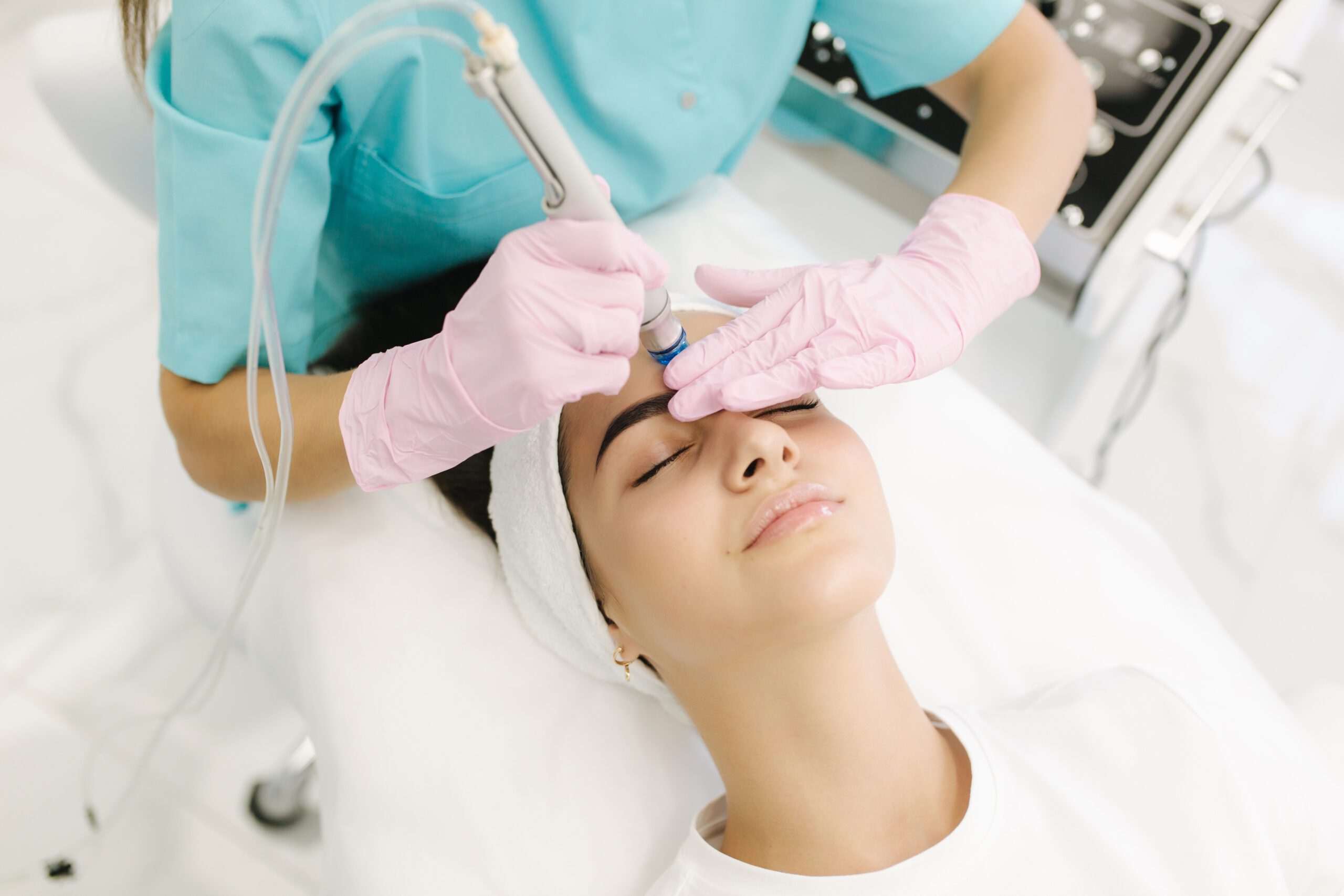Cold weather skin care tips from the Dermatology Clinic’s Dr. Mallory Abate [Sponsored]

“I’ve lived in some places where it gets seriously cold,” says Mallory Abate, the newest board-certified physician to join the Dermatology Clinic. Abate grew up in central Arkansas and after her residency joined the dermatology faculty at St. Louis University in St. Louis, Missouri. She’s braved many harsh winters in those climates and knows a few things about protecting skin from the cold, which she is glad to share with her new city as we Louisianans prepare for the cold months ahead.
The Skin: Our Protective Barrier
The skin is our outermost barrier of protection and a first line of defense against the harsh elements of the world. Lipids—the skin’s natural fats—are essential components of skin and play a crucial role in maintaining the strength of its protective barrier. We must protect this part of the skin so the skin can do its job of protecting us. “In December through February when the humidity drops and the air becomes colder, the skin can become dryer,” says Dr. Abate. “Changing up your skin care routine and some of your warm-weather habits is a must during this time of year.”
The Face
Dry skin can cause the face to be extra sensitive and make fine lines and wrinkles more noticeable. “I recommend using a bland skin care regimen with products that help build and repair your skin barrier and contain hydrating elements like ceramides, glycerin and hyaluronic acid,” says Abate. Some over-the-counter face washes she prefers include CeraVe Hydrating Facial Cleanser and La Roche Hydrating Gentle Face Cleanser. Using a good moisturizer is also very important. “We have a great new moisturizing product, Neocutis Bio Cream Firm Riche, which is filled with both collagen and elastin-building peptides that firm and tighten the skin to decrease skin sagginess while providing excellent hydration,” explains Abate. “EltaMD AM Therapy and PM Therapy moisturizers are both a favorite line among dermatologists and do not disappoint. AM contains willow bark extract that stimulates cell turnover and PM contains rice protein peptides that stimulate collagen formation and both are oil free so they are good for acne-prone skin.”
The Lips
Often times people forget about lips when venturing out into the elements. However, if you’re going to be out in the sun, the lips can certainly sustain UV damage, even in the winter. In addition, the cold air and indoor heat can dry them out. Dr. Abate suggests an amazing new product she loves: Revision YouthFull Lip Replenisher. “One application immediately replenishes volume and contour to the lips, plus it stays in place for a long time and has a pleasant mint flavor that makes your lips feel plump.” Wearing a daily lip sunscreen, especially if you are going to be on a snow skiing trip or at a Mardi Gras parade, is a good idea. Over the counter Aquaphor Lip Protectant + Sunscreen is a broad-spectrum SPF 30 lip balm that helps protect against both UVA and UVB rays.
 The Body
The Body
Dr. Abate says she sees quite a few patients who complain that they are feeling itchy during the winter, which is common due to skin naturally drying out in the colder months.” She offers a few tips to prevent dry skin all over the body. Really hot showers and hot baths may feel good, but they can drain moisture from skin. Short lukewarm showers and baths are best, followed immediately by applying a thick moisturizing cream, while the skin is still damp, which will help seal in moisture. Abate recommends using body creams over lotions because the cream is thicker and yields better results. Hint: You’ll most often find creams in jars rather than a pump bottle. Abate’s favorite is Aveeno Eczema Therapy Itch Relief Balm or CeraVe Moisturizing Cream, which is infused with ceramides. Another tip, if your skin is dry and itchy, avoid wool sweaters and wear cotton instead. You may also want to consider changing to sensitive skin laundry products like All Free and Clear and Tide Free and Gentle.
The Hands
The winter is peak cold and flu season and hopefully we are all thoroughly washing our hands. While this is good protection against viruses, it can also lead to dry hands. In addition, using antibacterial soaps can actually strip our skin barriers, which further dries out the skin and increases flare ups for those prone to eczema. Change to more gentle hand soaps and apply a barrier repair cream after washing your hands. Neutrogena Norwegian Hand Cream comes in a small tube and is easy to carry when you’re on the go. EltaMD So Silky Hand Cream is also a great option that’s non-greasy and absorbs quickly leaving the hands feeling soft and smooth.
Additional Tips
“A few other tips I recommend for my patients with winter dryness and eczema is to stop using products like retinoids, alpha hydroxy acids and harsh exfoliators, all of which tend to strip the outer skin barrier leading to dryness and irritation,” explains Abate.
 Another consideration, during fall and winter the UV index is lower and we all spend longer periods inside, which makes these seasons a great time to undergo any facial treatments like laser procedures, microneedling, BBL, chemical peels and resurfacing procedures.
Another consideration, during fall and winter the UV index is lower and we all spend longer periods inside, which makes these seasons a great time to undergo any facial treatments like laser procedures, microneedling, BBL, chemical peels and resurfacing procedures.
Another treatment the Dermatology Clinic offers, which is popular in colder months is a HydraFacial. This pleasant, non-invasive procedure is a lightly exfoliating facial that cleans out pores and hydrates your skin with an antioxidant serum containing hyaluronic acid so you feel moisturized and rejuvenated.
Dr. Abate reminds everyone, if your dry, itchy skin persists throughout the season, it could be an underlying medical condition that might need more in-depth treatment. If this is the case, definitely see your board-certified dermatologist. Winter is on its way, so break out those sweaters and coats, and don’t forget to protect your skin. It’s the only one you’ve got!











